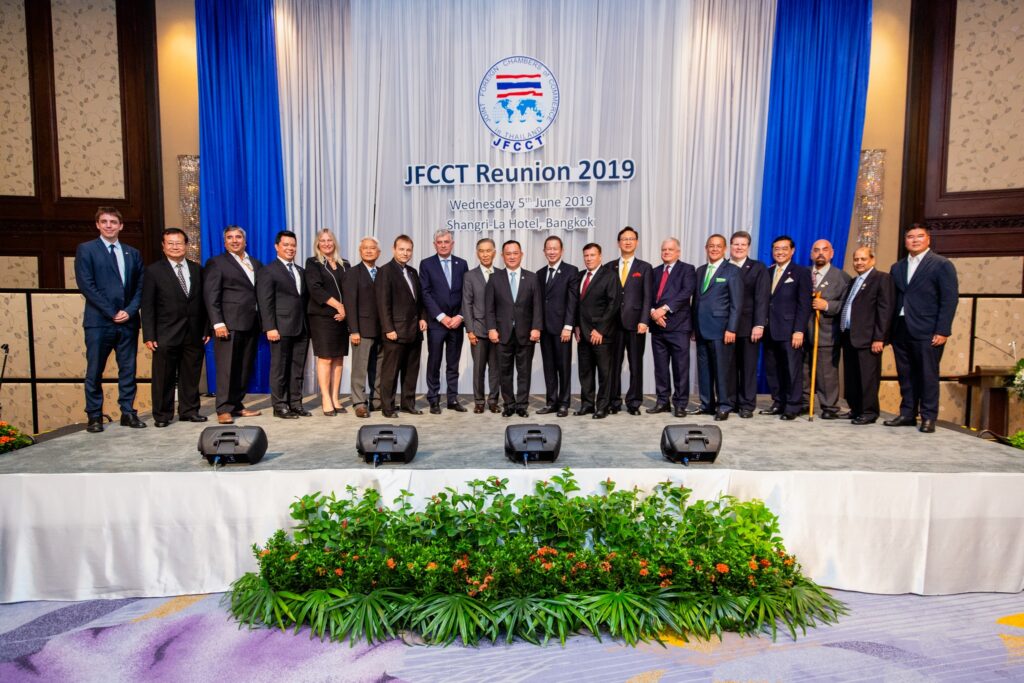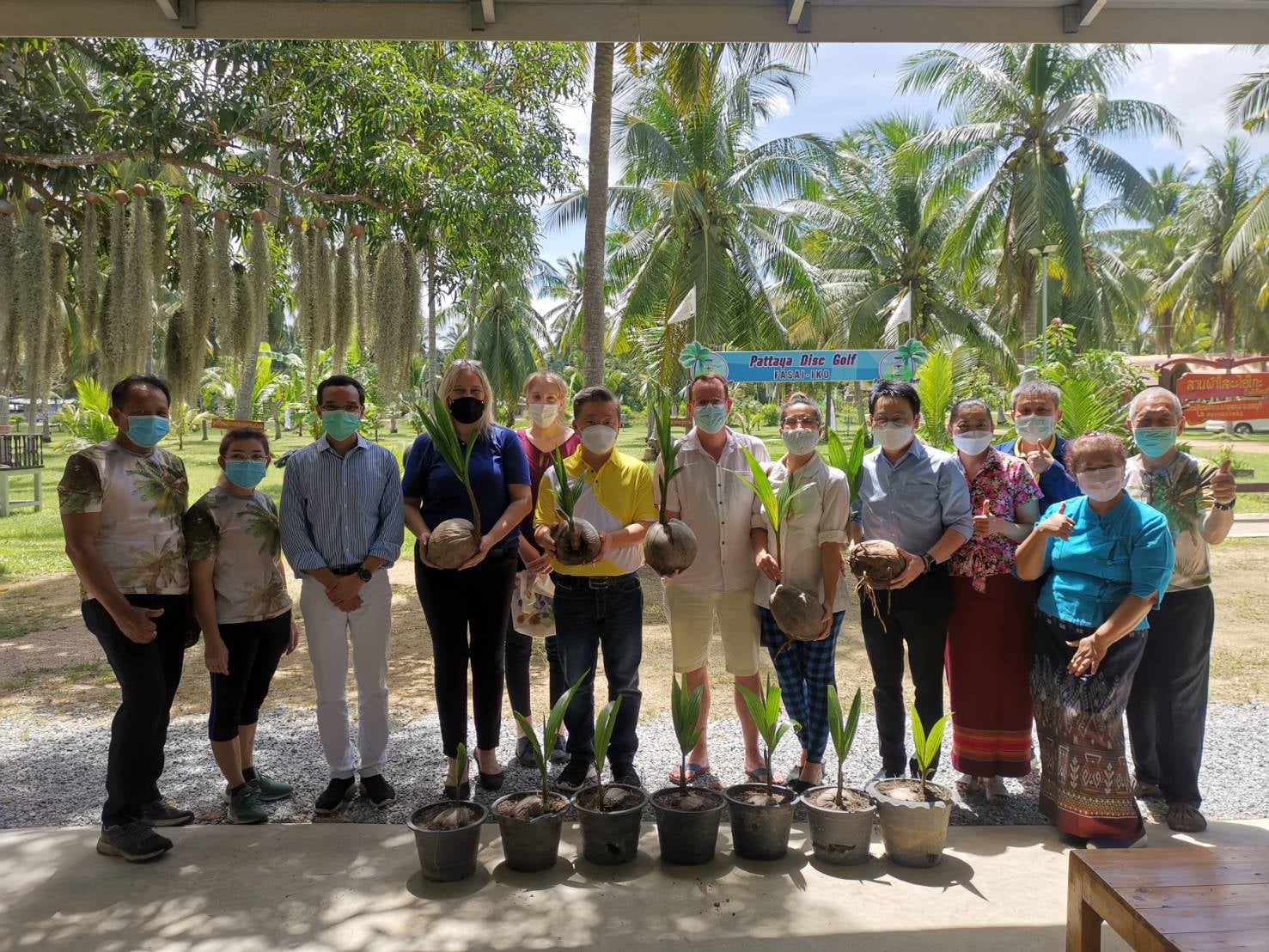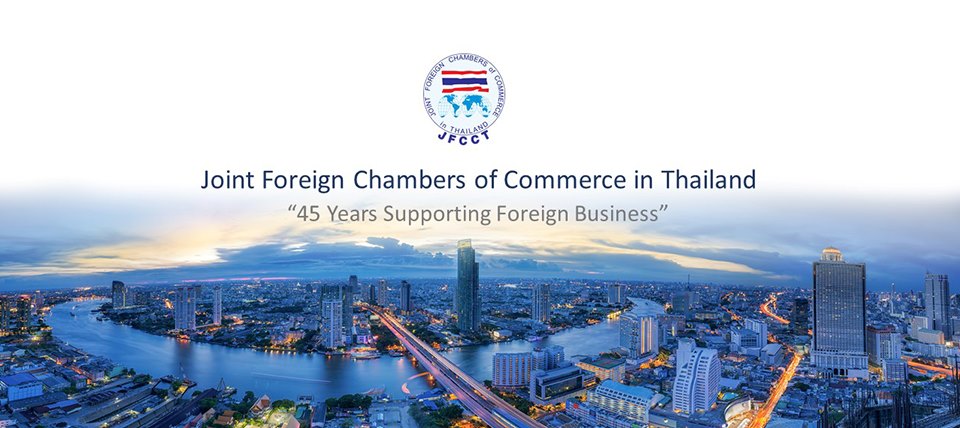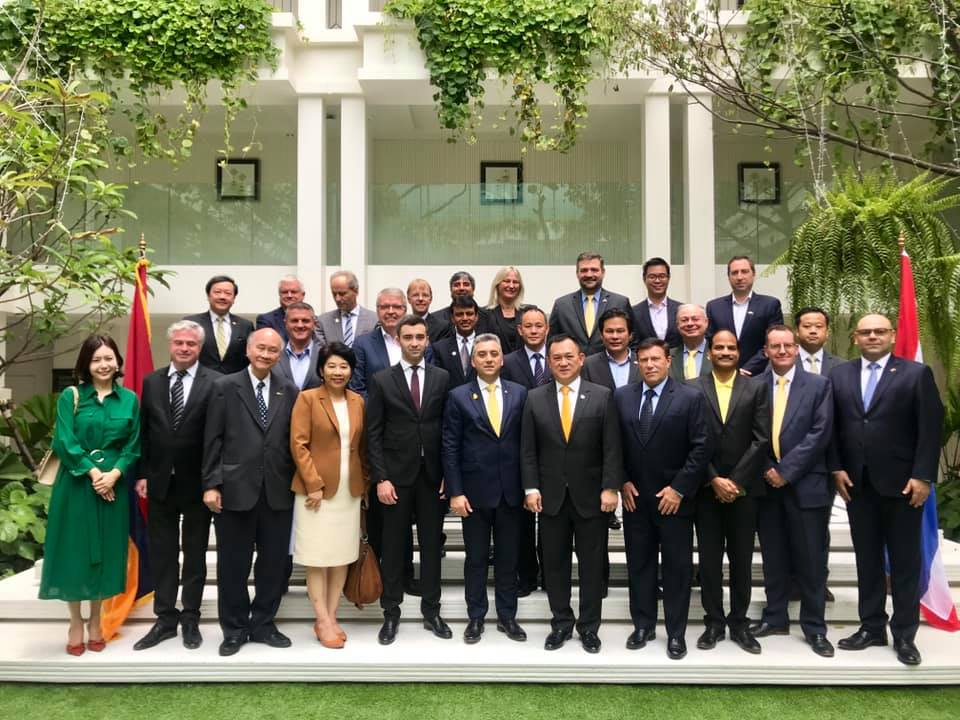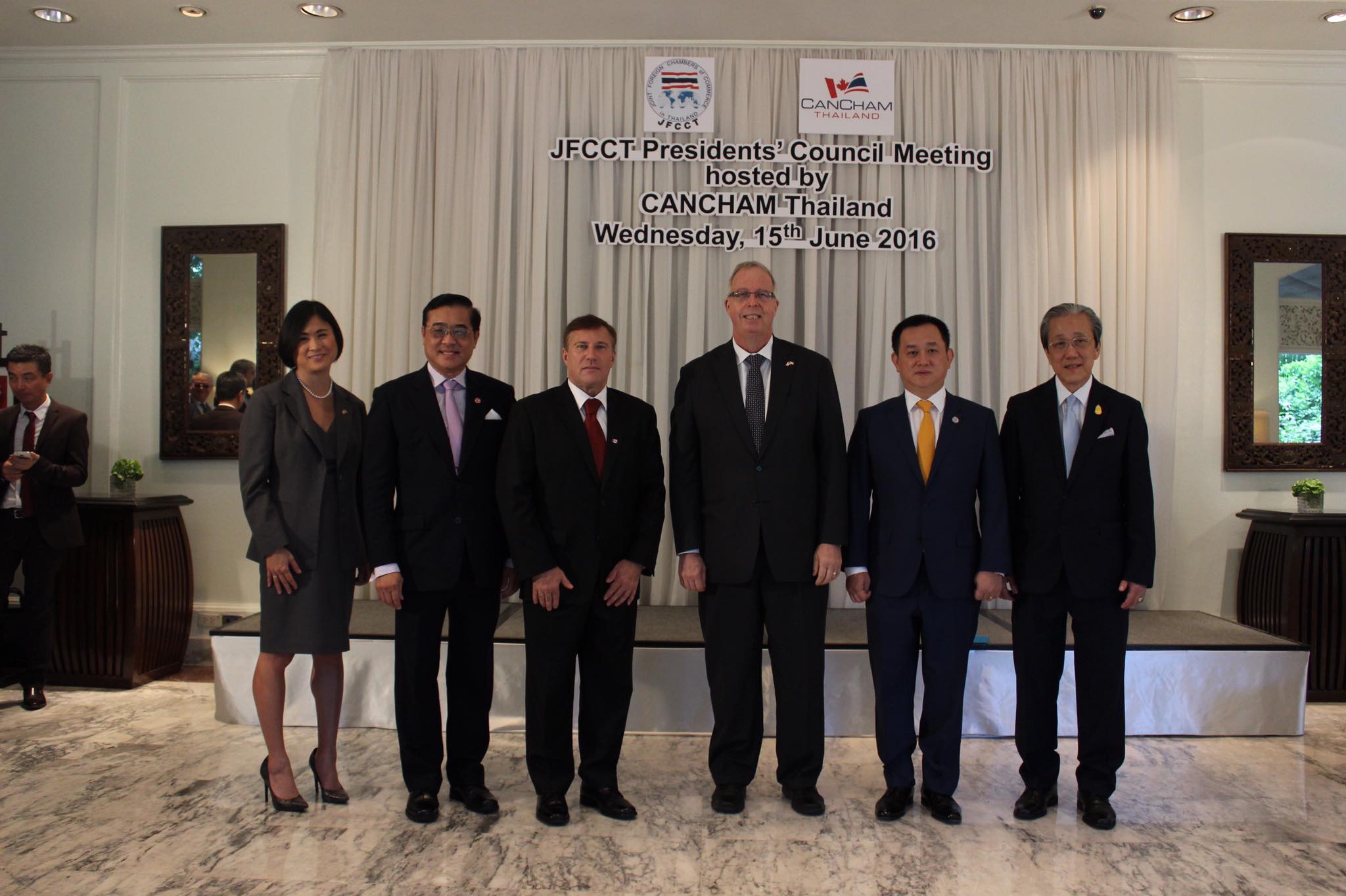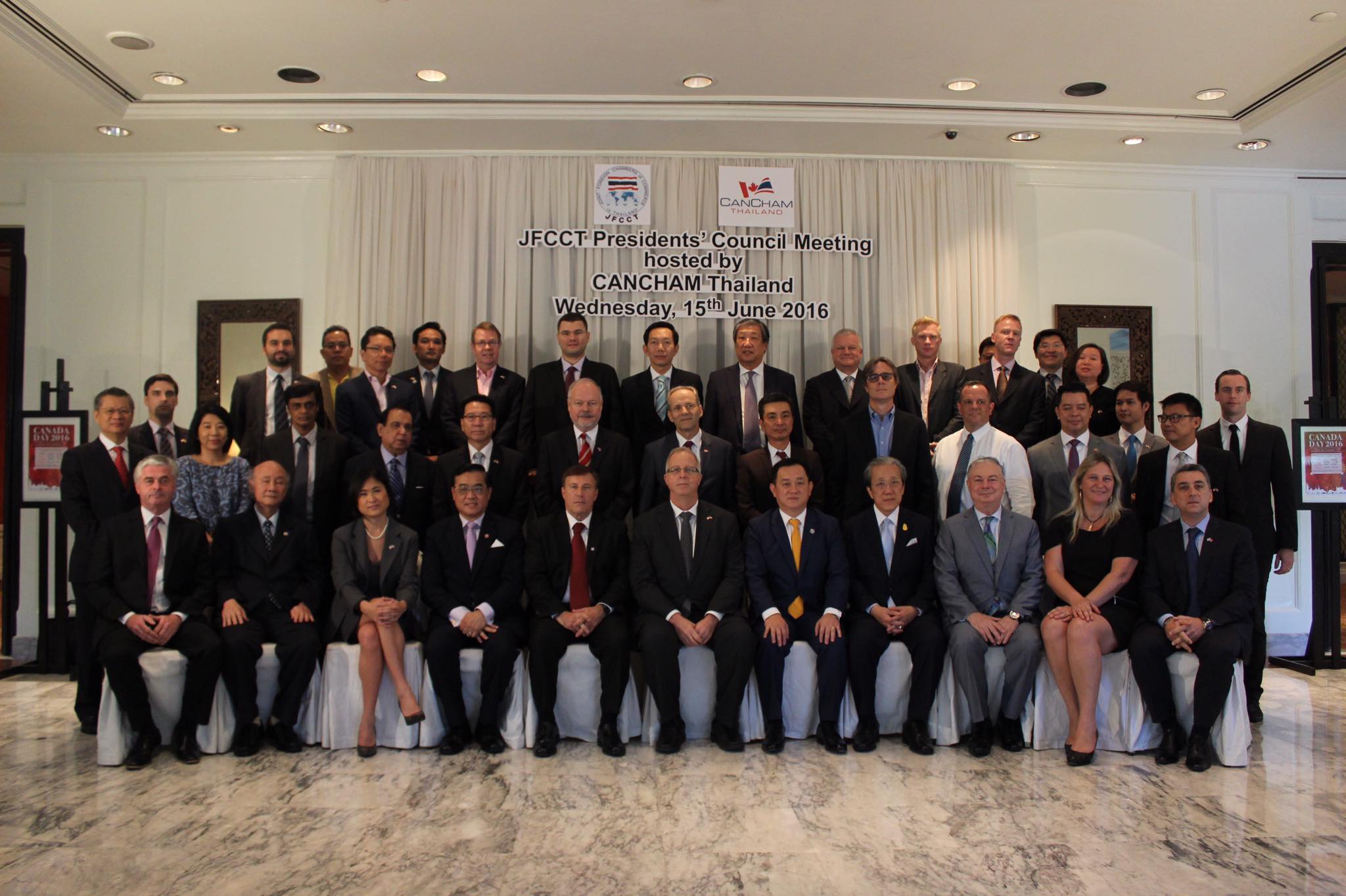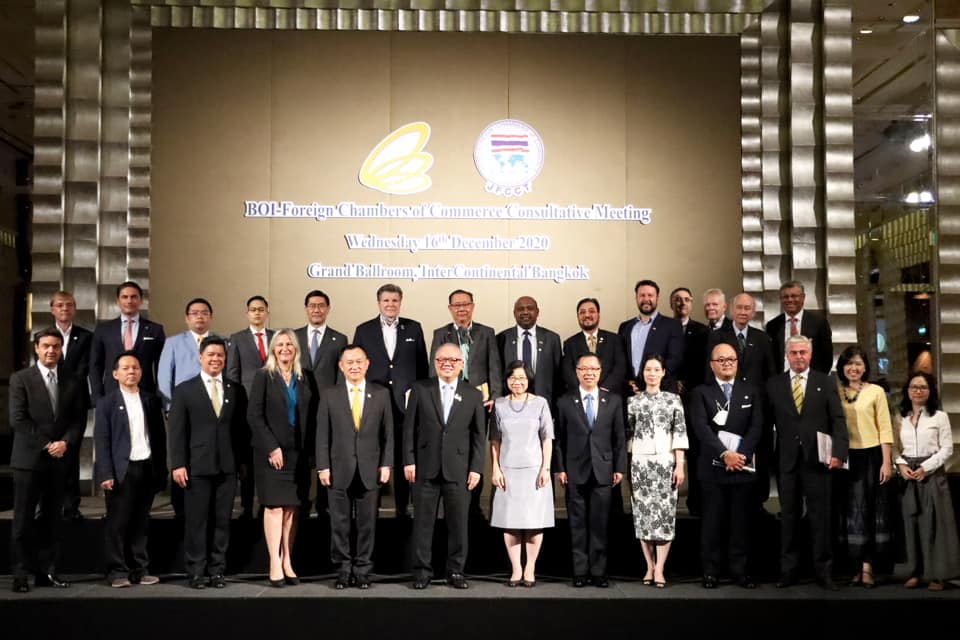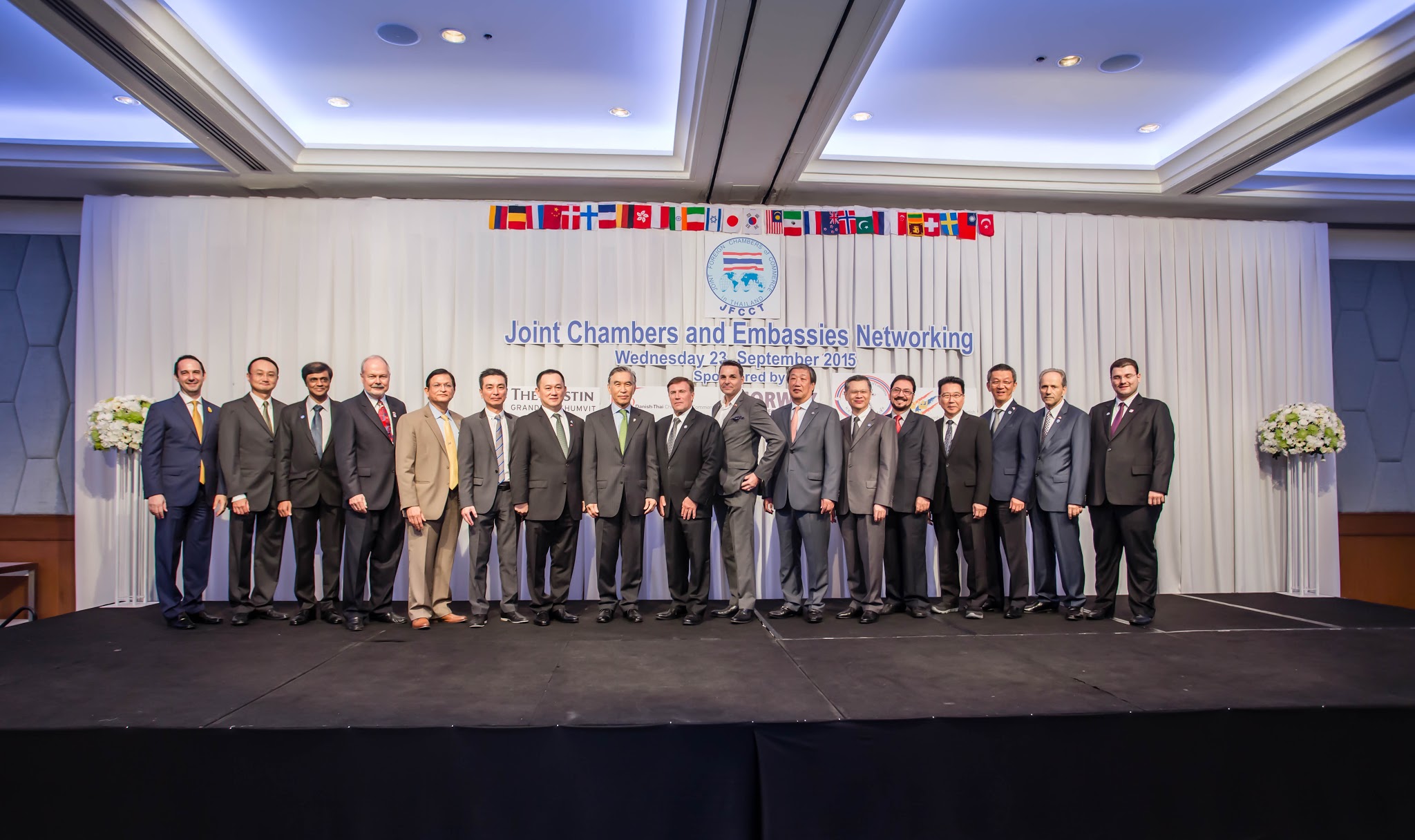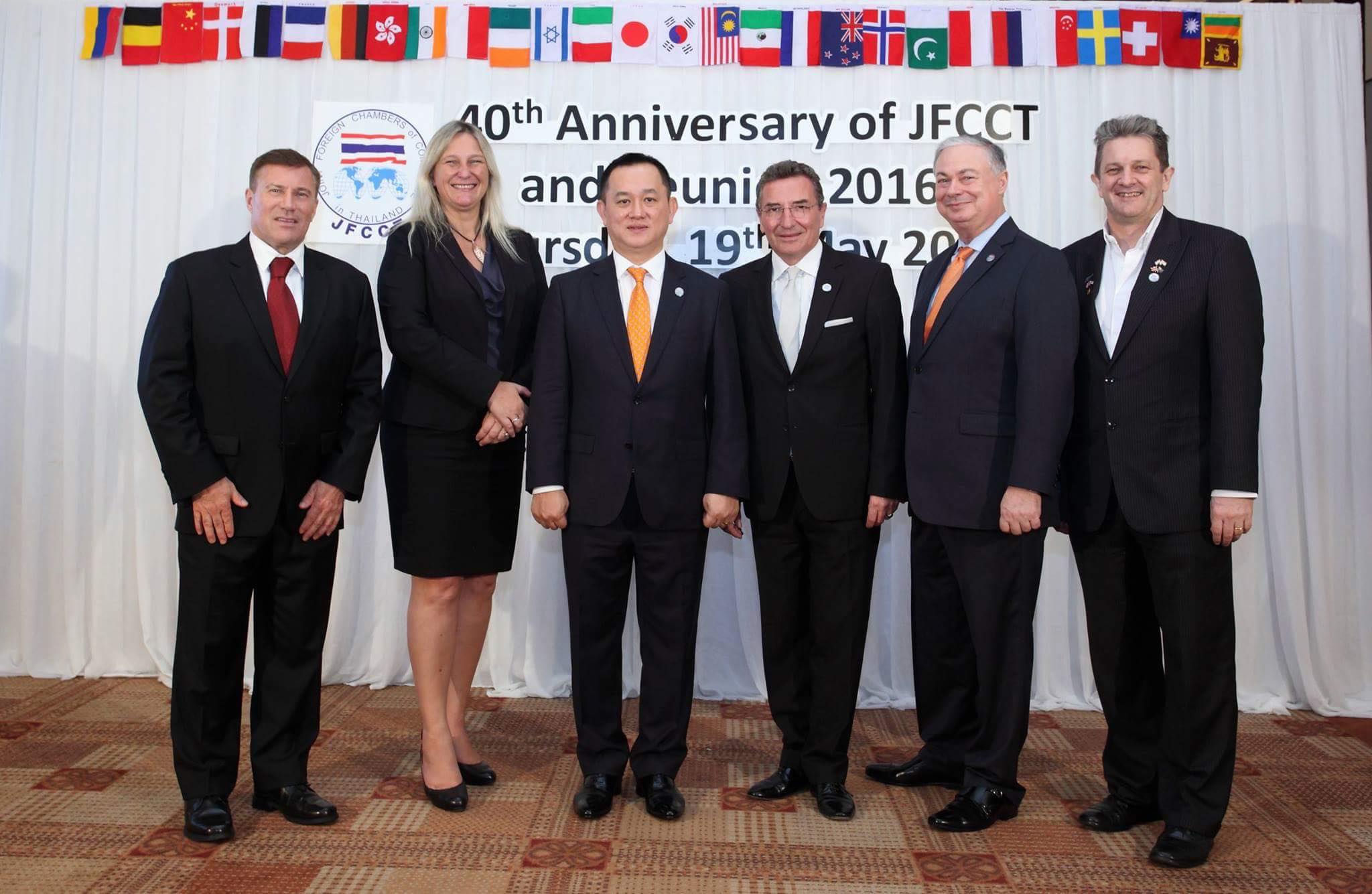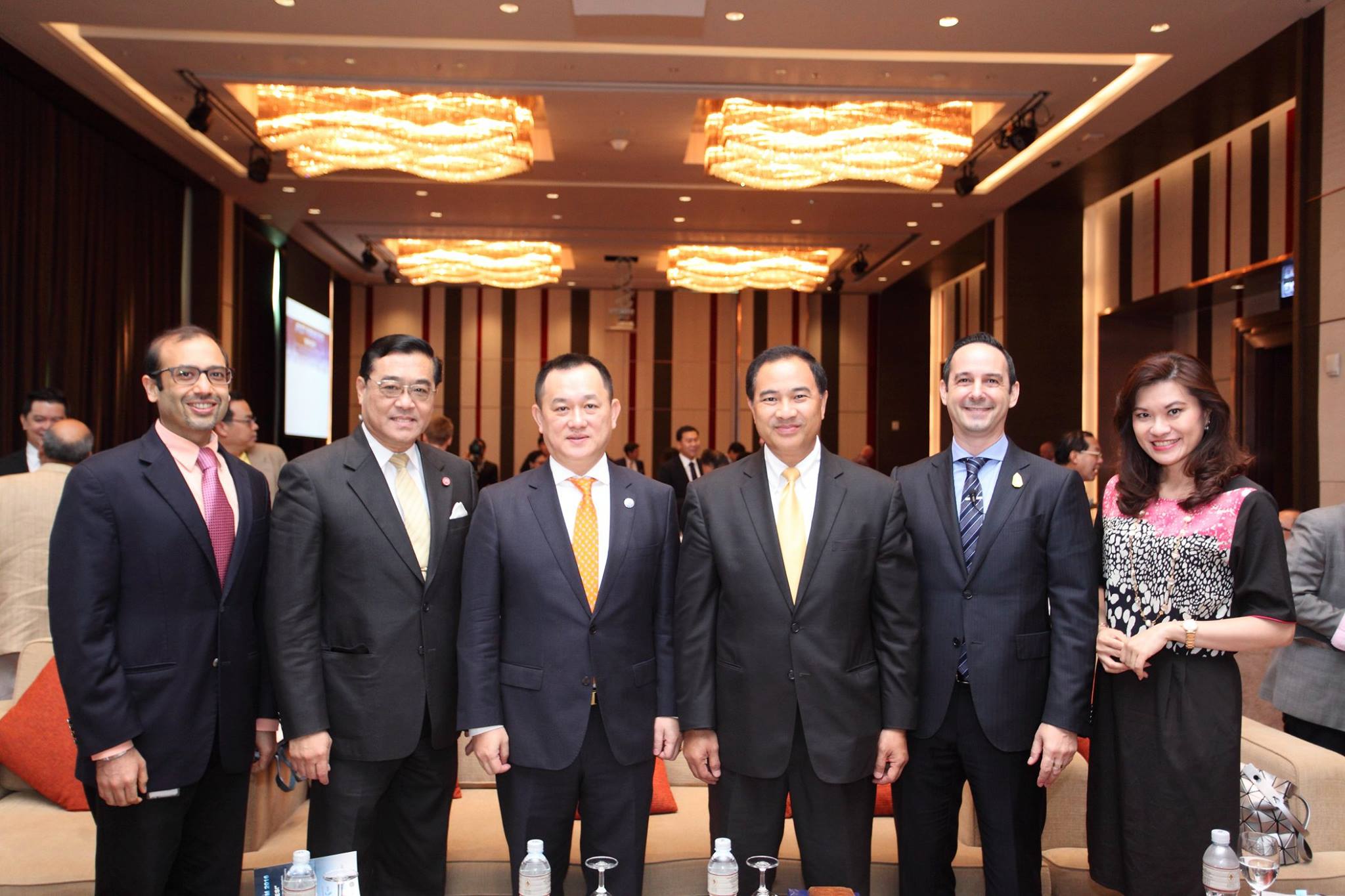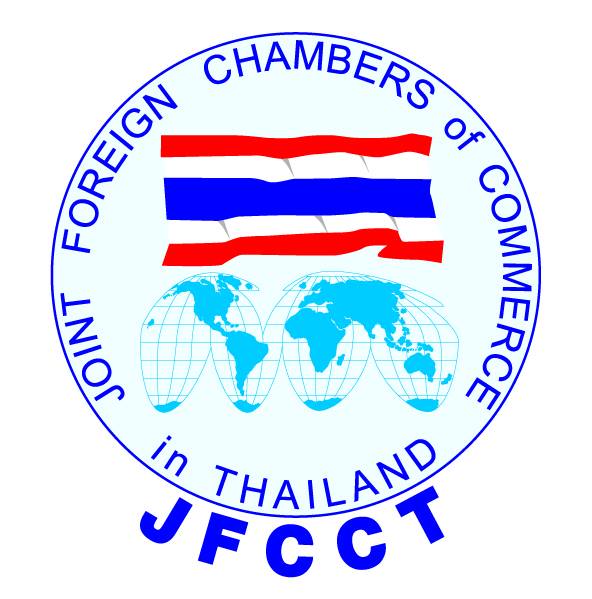About Us :
The Joint Foreign Chambers of Commerce in Thailand is the umbrella body for various Thai- foreign chambers or business associations operating in Thailand. There are 34 chambers and business associations representing more than 9,000 companies in this wide membership.
JFCCT Committees :
Digital Economy / ICT Committee
JFCCT has developed a schematic and explanation of Digital Economy which shows dependencies in the digital economy eco-system. This covers a wide variety of interests, including telecommunications services equipment, technology and equipment, IT services, software and software development, eCommerce, governance of the on-line world (data privacy, cybersecurity, electronic transactions), copyright, digital literacy, digital assets and digital broadcasting.
Education & Skills Committee
The Education and Skills (E&S) Committee was officially formed on June 17, 2014. Its first task was to identify the needs in the education and skills for the graduates from high school, vocational institutes, and universities. The post-graduate skills will also be the focus. To address these needs, potential approaches and initiatives will be proposed, planned and discussed, and preliminarily deployed. They aim to illustrate the possible solutions to the crisis on education and skills which are critical to Thailand’s long-term business competitiveness. It is important to note that these approaches and initiatives will be based on international practices and experiences from the E&S Committee members.
International Trade Committee
Thailand has Free Trade Agreements (FTAs) with a number of countries, all of the ASEAN countries, plus Japan, China, Korea, Australia, New Zealand, India and Peru. These FTAs cover a wide range of issues including liberalization of trade in goods, labour, services, and investment and could provide significant benefits to companies, the most obvious one being the chance to save import tariff duties when moving goods into Thailand from FTA partner countries.
SME Committee
Background
Small and Medium Enterprises (SMEs) have a strategic and significant role in the economy – potentially the largest single grouping by way of a driving force for economic development in Thailand.
SME issues cover a wide area where advances and improvement can be applied and whilst it is impossible to cover all issues affecting SMEs, the SME Committee can advocate and encourage policies and activities to build SME friendly policies and to promote entrepreneurship to help businesses scale up.
Tourism Committee
The JFCCT Tourism Committee is involved with all aspects of the tourism sector and engages regularly at an industry level as well as at a government level.

